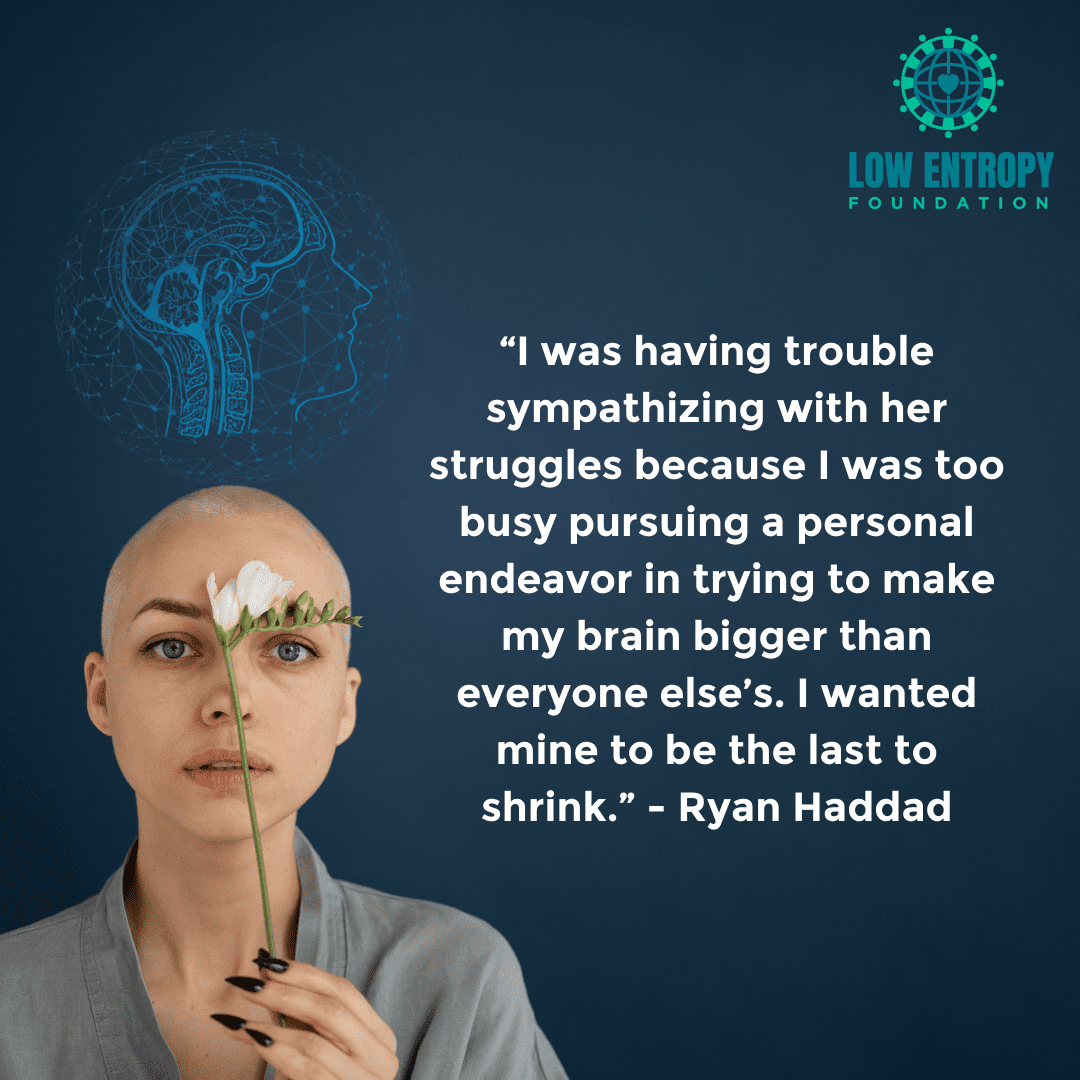Ryan Haddad (he/him/his), Low Entropy Volunteer Writer
One of the many unreasonable fears I had as a child concerned the unavoidable stage in my life where my brain would start to shrink. I never had a clear understanding of when this process would start, only that it was years ahead, too far to reason caring for it, but then again people always complained about how fast the years flew, so fast you had to convince yourself they actually happened.
Here are the facts. The brain starts to shrink between the ages of thirty or forty. This isn’t an unusual repercussion or a sign of an unhealthy lifestyle; it’s as common as experiencing back pain when getting out of bed in the morning.
The human brain has also been growing increasingly smaller over the past tens of thousands of years, meaning you most likely have a smaller brain than what your oldest ancestors had to work with, and subsequently their ancestors as well. This is what Brian Hare, professor of evolutionary anthropology at Duke, labelled “survival of the friendliest.” Additionally, brain shrinkage doesn’t influence the lobes uniformly. The frontal lobe goes first. This means your memories, your emotions and your command of language are the first to be affected.
Here’s a more concrete illustration: the amount of brain mass that humans have lost over the past 20,000 years is the size of a modern-day certified and surprisingly resilient professional-grade tennis ball. So then I have to ask: when’s the last time you held a tennis ball in your hand? Its weight holds a whole new meaning now.
This all terrified me as a kid. I distinctly recall afternoons when our neighbor, who has since passed away but was then edging seventy, complained to my mother over the phone about how she was growing shorter every year. I used to internally scoff at that. I was having trouble sympathizing with her struggles because I was too busy pursuing a personal endeavor in trying to make my brain bigger than everyone else’s. I wanted mine to be the last to shrink.
I read novels, textbooks and entire restaurant menus. I was both mathematical and methodical about it, hoping my brain would continue growing exponentially, like a balloon that would take over the world. The harder I tried, the more I felt like my brain was forcing itself into a smaller ball in spite of my efforts. Everything I learned was forming a pressurized seal around my skull. My strategy was failing; my mind wasn’t expanding. Our neighbor kept calling and complaining about her height. She was losing a millimeter a day.
It was as a result of those constant calls at random and unpredictable hours of the day that we eventually invited our neighbor to the beach. She and I sat in the backseat while my mother drove. Stephen Fry was on the radio. He was reading from his memoir, and eventually landed on the line, “While on the subject of intelligence, I have to say that I have never found it an appealing quality in anyone.” I found this unbelievable, and, forcibly trying to expand my brain in response to this ludicrousness, swiftly incurred a headache whereby it painfully shrunk to the size of a peanut. I turned to look at my neighbor. Her head was leaning out the window. She seemed to be enjoying the breeze. The sun was shining and the bright glare covered most of her head. It looked like she was glowing. I regretted that I couldn’t even remember her last name and was too shy to ask.
The beach was practically deserted when we arrived. My mother immediately dived in the water while our neighbor and I stayed behind, sitting on our towels. She seemed greatly preoccupied. I asked if she was afraid of the water. She said she didn’t know. It was her first time at the beach, any beach, ever. The sea, the real sea, was something new and alien to her. She’d only experienced it through photographs. I thought about that for a very long time. It seemed like a very special thing that, despite her body and brain shrinking simultaneously, her gazing at the sea for the first time was enough to fill her head with a child’s fascination. It was enough for her, so it had to be enough for me. I didn’t feel my brain shrinking while I was looking at her. My thoughts were as calm as the sea my mother was floating in.
***
Leave your stories in the comments below, or start up a dialogue with the Low Entropy community in person, at a Conscious Connections meeting or online at our community site. You can also follow us on Facebook, Instagram, TikTok, Twitter and YouTube to stay up-to-date with Low Entropy news!







